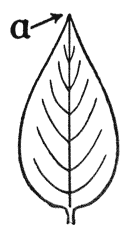
<< Need For A Solution Of Solutions >>

As evidenced by atoms, DNA, and computer binary language; the most dynamic of systems have
a complexity of implications derived from the simplest of centers. A solution should not attempt
to reproduce the highly intricate design, but create the equation from which design arises.
The solution should address what the essays of humanities have predicately questioned:
How to live freely while letting others freely live? If one is too controlled, then by definition one
does not live freely (evidenced in strict theocracies or dictatorships). Reiterating the same thing
differently: If one is too unrestrained in certain areas, then there is danger as the unrestrained
overflows and inhibits the ability of others to freely live. These unrestrained "certain areas"
currently converge around axes of economic power and special-interest absolutism.

Capitallism does not seek to stick the "lowest" class on "top," and thus reestablish the
very situation it intended to correct. Capitallism prevents the top from becoming so out-ofcontrol
that its very out-of-controllness leads to the misrepresentation and control of others. It
does not call for hierarchical laws and committees to develop point solutions to patch every
instance of power abuse that arises. Sometimes point solutions are necessary--legislative reform
and taxes on inequality and consumption may be useful, though still lurking is the need for a
more permanent and fundamental solution, one that will not be reversed with the whims of
current special interest fashion. The goal is to identify patterns of problem, not the problems
themselves, and apply solutions to the pattern.
It is crucial for a dynamic self-regulation to be the center of the solution, not imposed
from some power above. The constitutional system of checks and balances was originally
designed with this concept of intrinsic regulation in mind. Legislative, congressional, and
judicial branches were designed to minimize the power of each other such that one could not
destroy all. A brilliant theory, except for the fact that it neglected situations where the elected
officials spoil from within, or when a government itself asserts an imperial rule. It did not thwart
one very specific pattern of problem: Wealth equals power--power corrupts; absolute power
corrupts absolutely.
Capitallism Defined -->
|
